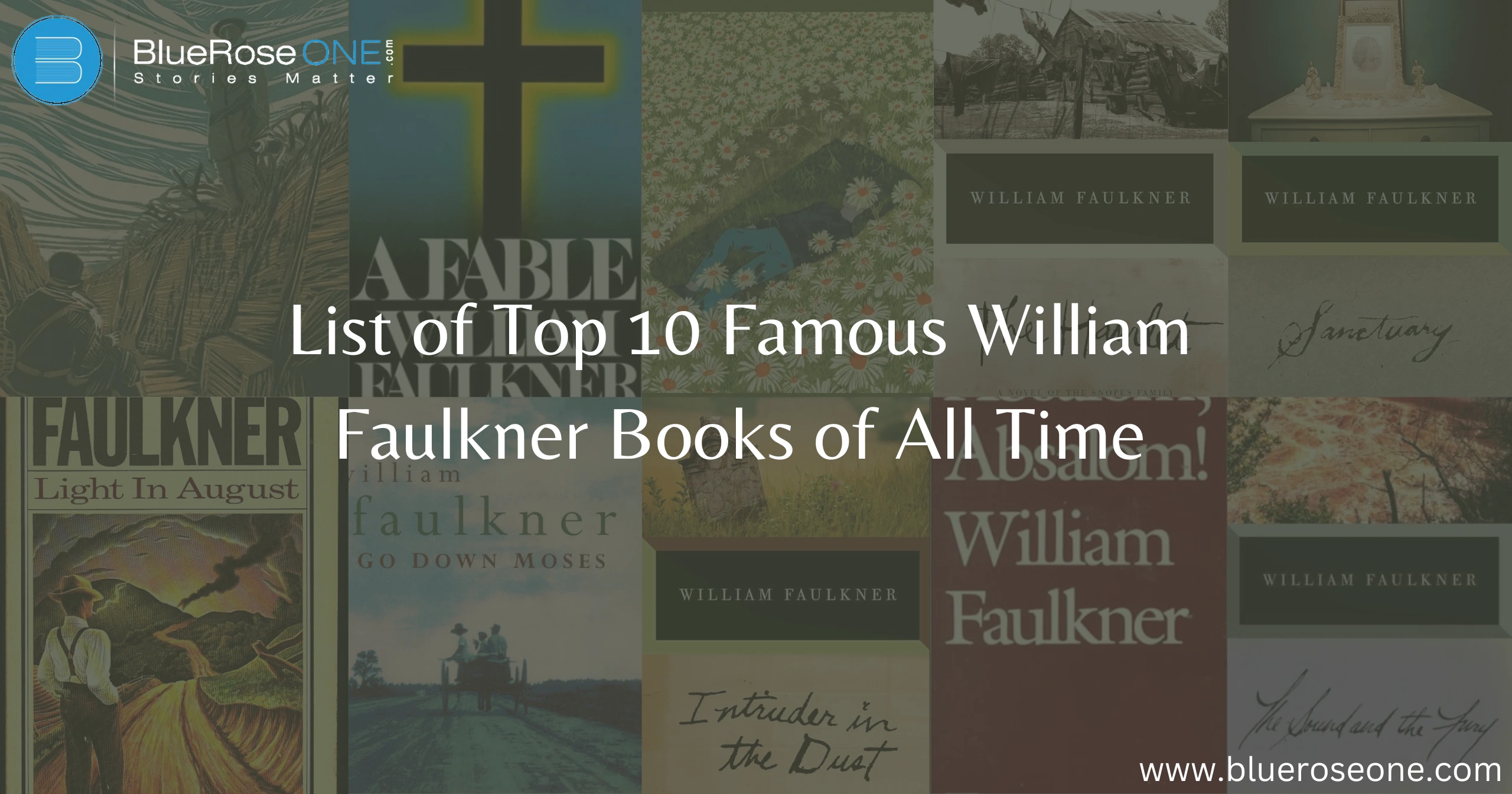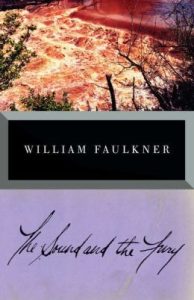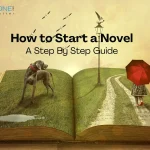William Faulkner is one of America’s most recognized writers, known for his sophisticated storytelling and mastery of stream-of-consciousness writing. His writings frequently address issues of history, race, and the difficulties of Southern living. If you want to delve into Faulkner’s literary world, here is a list of his top ten most famous works that demonstrate his brilliance.
1. The Sound and the Fury (1929)
William Faulkner’s The Sound and the Fury (1929) is a seminal work of modernist literature, known for its intricate narrative structure and use of stream of consciousness.
The work examines the decline of the Compson family, a once-prominent Southern aristocratic bloodline, via the eyes of four distinct narrators.
Faulkner depicts issues of time, memory, and decay through nonlinear storytelling, shifting viewpoints, and subtle symbolism. The novel’s experimental form and profound psychological insight make it a tough but influential masterpiece in American literature.
Why You Should Read It
- One of Faulkner’s most critically acclaimed books.
- Unique narrative style that challenges conventional storytelling.
- A deep exploration of time, memory, and family decline.
You may also like: Book Review: Lord of the Flies by William Golding
You may also read: Bunny vs Monkey Books in Order – Ultimate Reading Guide
2. As I Lay Dying (1930)
As I Lay Dying (1930) by William Faulkner is a modernist Southern Gothic novel about death, family, and identity.
The story recounts the Bundren family’s hard trip to bury their matriarch, Addie, in the location she wanted. Faulkner uses stream-of-consciousness techniques to depict the characters’ inner problems, which are told from 15 various perspectives.
The novel criticizes human selfishness, existential misery, and cultural conventions, making it one of Faulkner’s most researched and significant works.
Why You Should Read It
- A fascinating look at different personal perspectives.
- Darkly humorous and tragic in equal measure.
- One of the most unique narrative structures in American literature.
You may also like: WhiteSmoke Review: Features, Pricing, Pros & Cons
You may also like: 20 Satire Examples in Real-World Every Writer Should Know
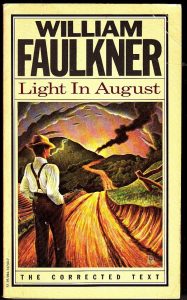
Light in August - William Faulkner
3. Light in August (1932)
Light in August (1932) by William Faulkner is a Southern Gothic novel about identity, prejudice, and solitude in the American South.
The plot revolves on numerous characters, including Lena Grove, a pregnant lady looking for her child’s father, and Joe Christmas, a biracial guy battling with his identity.
Faulkner’s nonlinear storytelling and rich symbolism attack social and racial stereotypes. The novel offers a compelling reflection on the intricacies of human nature and societal differences.
Why You Should Read It
- A compelling exploration of race and identity.
- A beautifully written yet tragic tale.
- Features some of Faulkner’s most complex characters.
You may also read: The Stormlight Archive Series Review: Is It Worth Reading?
You may also like: Top Cozy Fantasy Books Every Bookworm Will Love
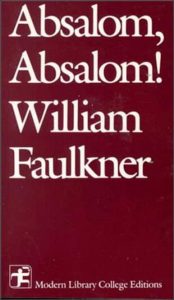
Absalom, Absalom! - William Faulkner
4. Absalom, Absalom! (1936)
Absalom, Absalom! (1936) by William Faulkner is a sophisticated Southern Gothic novel that delves into themes of race, identity, and the decline of the Old South.
The narrative revolves around Thomas Sutpen, a tyrannical plantation owner whose ambitions lead to his family’s demise. The work, told through numerous narrators, features Faulkner’s distinctive stream-of-consciousness style and convoluted chronology.
It is a masterwork of American literature that critically examines the South’s problematic history as well as the devastating power of obsession and legacy.
Why You Should Read It
- One of the most complex novels ever written.
- Explores Southern history and racial tensions.
- A masterclass in storytelling.
You may also like: Fifty Shades of Grey: Book Review | BlueRoseOne
You may also read: How to Read Jack Carr Books in Order: Ultimate Guide
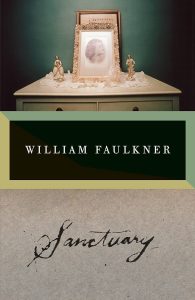
Sanctuary - William Faulkner
5. Sanctuary (1931)
Sanctuary (1931), by William Faulkner, is a dark Southern Gothic novel about crime, corruption, and moral deterioration in the American South.
The narrative revolves around Temple Drake, a young woman who becomes involved with a dangerous bootlegger named Popeye. Sanctuary, known for its sensitive subjects such as sexual abuse and legal injustice, surprised readers when it was first released.
Faulkner’s compelling story and psychological depth make it an effective critique of societal deceit and human degradation.
Why You Should Read It
- One of Faulkner’s most controversial novels.
- A gripping, noir-like thriller.
- A bold critique of Southern society.
You may also like: List of Top 10 Famous Ravinder Singh Books of All Time
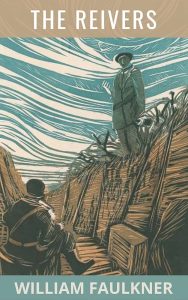
The Reivers - William Faulkner
6. The Reivers (1962)
William Faulkner’s final novel, The Reivers (1962), was released soon before his death. It’s a humorous yet poignant coming-of-age narrative about 11-year-old Lucius Priest, who goes on an adventure in a stolen vehicle with two friends in early twentieth-century Mississippi.
The work contrasts adolescent innocence with the complications of adulthood, weaving humor into Faulkner’s hallmark themes of morality, racism, and Southern heritage. The Reivers won the Pulitzer Prize for Fiction in 1963.
Why You Should Read It
- A fun, accessible Faulkner novel.
- Showcases Faulkner’s humor and warmth.
- A fitting end to his literary career.
You may also: List of Top 10 Jhumpa Lahiri Books of All Time
You may also like: 10 Classic Flat Character Examples in Literature and Film
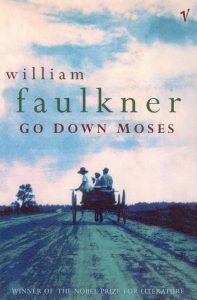
Go Down, Moses - William Faulkner
7. Go Down, Moses (1942)
William Faulkner’s Go Down, Moses (1942) is a complex novel that is sometimes read as a collection of interconnected short stories.
It delves into topics of racism, family legacy, and the changing South through the McCaslin family’s history over decades. The work explores the constraints of slavery, moral quandaries, and identity conflicts, particularly via the character of Ike McCaslin.
Faulkner’s distinctive stream-of-consciousness style and nonlinear narrative structure allow for a profound study on history and human nature.
Why You Should Read It
- A powerful look at the African American experience in the South.
- Features Faulkner’s poetic, rich storytelling.
- Explores deep moral and philosophical questions.
You may also like: List of Top 10 Famous Durjoy Dutta Books of All Time
You may also read: Lottie Brooks Books in Order: A Quick & Fun Guide
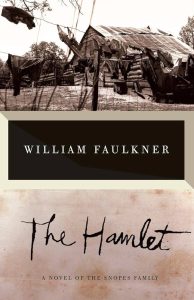
The Hamlet - William Faulkner
8. The Hamlet (1940)
William Faulkner’s first work in his Snopes Trilogy, The Hamlet (1940), was followed by The Town and The Mansion.
Set in the fictional Yoknapatawpha County, it follows the development of the clever Flem Snopes, a poor but ambitious man who manipulates his way to fortune and power.
Faulkner’s lush prose and dark humor accentuate issues of wealth, societal change, and moral deterioration in the American South, making for an engaging study of human ambition.
Why You Should Read It
- A brilliant satire of greed and corruption.
- Introduces some of Faulkner’s most memorable characters.
- A compelling, character-driven narrative
You may also read: The Mighty Red by Louise Erdrich: A Deep Dive into Her Latest Novel
You may also like: All Colleen Hoover Books in Order Listed by Series & Date
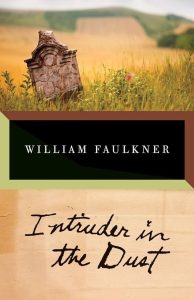
Intuder in the Dust - William Faulkner
9. Intruder in the Dust (1948)
Intruder in the Dust (1948) by William Faulkner is a dramatic Southern Gothic novel that delves into themes of race, justice, and morality in the American South.
The story is set in Mississippi and follows Lucas Beauchamp, a Black man who is wrongfully accused of murder. Chick Mallison, a young white lad, takes it upon himself to prove Lucas’ innocence, challenging the town’s long-held preconceptions.
Faulkner’s rich, intricate work attacks racial injustice and the moral problems of the South.
Why You Should Read It
- A powerful civil rights-era novel.
- Highlights themes of justice and moral courage.
- A gripping courtroom drama.
You may also: A Complete List of Anuja Chauhan Books

A Fable - William Faulkner
10. A Fable (1954)
A Fable (1954), by William Faulkner, is a complicated allegorical novel set during World War I. It revolves around a Christ-like corporal who organizes a revolt against the war, representing sacrifice and redemption.
Faulkner spent more than a decade writing the novel, combining modernist approaches with biblical and historical connections.
Despite receiving mixed reviews, it received the Pulitzer Prize and the National Book Award, cementing Faulkner’s reputation as a master of American literature.
Why You Should Read It
- One of Faulkner’s most ambitious works.
- A unique take on war and its consequences.
- Award-winning and critically acclaimed.
You may also like: Book Reviews: The Rule Breakers a Book By Preeti Shenoy
Conclusion
William Faulkner’s works reflect his creative genius, providing significant insights into human nature and the complexity of Southern life. Whether you’re a seasoned reader or new to his work, these ten volumes are a wonderful place to begin. Each novel provides a distinct glimpse into Faulkner’s universe, making his work both ageless and necessary.

